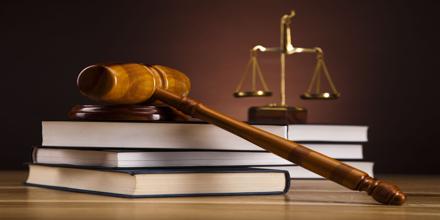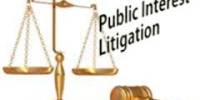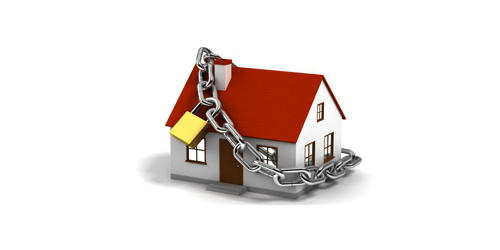Key functions of the legal systems in Business Law Studies
“law is what the sovereign says it is.”
A rule of external human action enforced by the sovereign political authority
Established habits and thought of mankind which has gained distinct and formal recognition in the shape of uniform rules backed by the authority and power of govt.
The technique for the regulation of social power ( the capacity to direct the behavior of other) – the power to make policy , to make rules and to make decisions
The law consists of rules that regulate the conduct of individuals, businesses, and other organizations within society. It is intended to protect persons and their property from unwanted interference from others. The law forbids persons from engaging in certain undesirable activities.
Reasons to study law
- Law is relevant to everyday life. The law governs our conduct – some behaviour amounts to a crime; some actions may be civil wrongs. Every time we buy something, we make a contract, whether the purchase is a newspaper, a bar of chocolate or an expensive item such as a car or a house.
- Knowledge of current affairs is essential to the study of law. There are many influences that result in changes to the law –among them are political, technological, international and moral influences. To appreciate the role of law in society, you need to be aware of these influences through knowledge of current affairs.
- Going to court is not an activity just for lawyers and offenders. Anyone may witness an accident or a crime and be required to go to court to give evidence. Often cases are resolved in private through negotiation, arbitration or mediation.
- Knowledge of how and why law changes is useful background knowledge for a whole range of subjects. It is essential for students of law to understand how and why law changes and on any law course there is likely to be a section about law making
- Good communication is a valuable skill in any walk of life and studying law helps to develop and improve that skill.
What is tort A tort is a wrongful act, other than breach of contract, for which the law provides a civil remedy. Some acts, which are torts, are also crimes. Tort law protects personal, property, and economic interests. Torts are categorized according to the degree of fault that must be proven
Key functions of the legal systems
- Enhancing social stability Keeping the peace- Including making certain activities crimes
- Shaping moral standards., enacting laws that discourage drug and alcohol abuse
- Conflict resolution and Promoting social justice., enacting statutes that prohibit discrimination in employment
- Facilitating orderly change., passing statutes only after considerable study, debate, and public input
- Facilitating planning, well-designed commercial laws allow businesses to plan their activities, allocate their resources, and assess their risks
- Maximizing individual freedom., the rights of freedom of speech, religion, and association
- Social maintenance – reflect the social values and customs of a society
- Social change
Classifications of law
Public and private
- Public- legal relationships between members of society and the government to influence behavior and bring about social change
Private- legal relationships among members of society resolves disputes and administrative affairs
Substantive and procedural
- Substantive -defines legal rights and regulates behavior
- Procedural -how it is to be enforced establishes processes for settling disputes how it is to be enforced
Civil and Criminal
- Criminal law- criminal law concerns those activities that society has outlawed
Dangerous behavior outlawed by society it is determined guilty can be fined, imprisoned or both Beyond a reasonable doubt
- Civil law-civil law concerns the rights and liabilities between private parties;
- Victim, not government brings suit
- Guilt not determined
- Preponderance of the evidence
What is crime -Crimes that harm business
- Larceny — the trespassory taking of personal property with the intent to steal it. Someone else originally had the property.
- Embezzlement — fraudulent conversion of someone else’s property already in the defendant’s possession.
- Fraud — deception for the purpose of taking money or property from someone. Includes bank fraud, wire and mail fraud, insurance fraud, medicare fraud.
- Computer crime — by means of an internet that crosses state lines
Legal system of Bangladesh .
- The legal system is based in part on English common law.The British-era legislation applied in pakistan after 1947 and after the emergence of Bangladesh in 1971, initially there was no change of laws and the judicial system. But with the coming into force of the constitution of Bangladesh on 16 December 1972, and amended in 1977 to remove principle of secularism included in part ii entitled fundamental principles of state policy – replacing it with “absolute trust and faith in almighty Allah.” The eighth amendment of 1988 inserted article 2a, affirming that “the state religion of the republic is islam, but other religions may be practiced in peace and harmony in the republic.“
Sources of law
- Common law
- Constitutions
- Legislatures
- Administrative agencies
- Judiciary
- Executive
Common law
- Common law established by precedent, or earlier cases decided by courts . Came from old English system. Two hundred years ago, almost all law was common law; most new law is statutory. Judge usually followed earlier decisions that resolved similar disputes
Constitutions
- Fundamental law of the land. The basic law of Bangladesh is the constitution of the people’s republic of bangladesh, 1972 as amended from time to time. Till 1996, thirteen amendments have been made. All laws of the country are subordinate laws made by the elected Sangsad conforming to the tenets of the constitution.
- The laws enacted by the legislature and now in operation regulate almost all spheres of life.
- The republic the state religion , the state language
- Fundamental principles of state policy-principles of ownership
- Fundamental rights equality before law equality before law
- Elections , the services of bangladesh , emergency provisions
Legislatures, Administrative agencies , Judiciary, - Legislatures – judges interpret, must pass constitutional muster- establishment of parliament , . qualifications and disqualifications for election to parliament , speakers and deputy speaker ,. rules of procedure, quorum, etc. , Legislative procedure
The judiciary – the supreme court, subordinate courts
- The executive-– the president , the prime minister and the cabinet , non-party care taker government – local government , -the defence services , – the attorney-general
- Ordinarily executive authorities and statutory corporations cannot make any law, but can make by-laws to the extent authorized by the legislature. Such subordinate legislation is known as rules or regulations
Court system
The judiciary is organized at two levels,
- Appellate and high court divisions.
- Subordinate courts and a supreme court
- Appellate and high court divisions. The appellate division is vested with power to hear appeals from the decisions of the high court division or from any other body under any statute. The laws declared by the appellate division is binding on the high court division and law declared by either division is binding on all subordinate courts.
High court divisions. As the top court the high court division has been vested with the power to hear appeals and revisions from subordinate courts, and also to issue orders and directives in the nature of writs to enforce fundamental rights and to grant other relief’s available under the writ jurisdiction. The high court division has also powers of supervision and control of the subordinate courts and tribunals .The high court of calcutta was set up in 1862. That similarity in process, both in civil and criminal law, continued throughout the next almost 150 years.
- The high court division may declare any law inconsistent with the fundamental rights as null and void.
Subordinate courts and a supreme court
- The supreme court is a court of record and can punish any one for its contempt or contempt of the courts subordinate to it.
- The president of the republic controls the judicial officers of the subordinate courts in consultation with the supreme court.
Labor courts and labor appellate
- There are labor courts and labor appellate tribunals to decide labor disputes,
- Administrative tribunals and administrative appellate tribunal to decide service disputes of public servants,
- Income tax appellate tribunal to decide income tax disputes, custom, excise and
- VAT appellate tribunal to decide disputes regarding custom and excise duties and VAT,
The legal system
The legal system is so vast and complicated that an ordinary person without the help of a legal practitioner (known as advocate) cannot effectively seek legal remedy from the court, administrative authorities or tribunals though there is no legal bar in seeking remedy directly without engaging a lawyer.
In bangladesh every one is equal before the law and entitled to equal protection of law, and there cannot be any discrimination on the ground of religion, race, sex, etc and no one can be detrimentally affected in life, liberty, body, reputation or property except in accordance with law. Law is the result of judicial decisions
Steps to legal reasoning
- What are the facts? The basic building blocks which provide the environment or context within which the legal issue is to be resolved. They are the facts relevant to the dispute at hand.
- Key parties and actions list case name (plaintiff v. Defendant)
- What is the issue? 3. What are the relevant rules of law? Importance of stating the issue: parties to the dispute expend great effort to get the court to see the issue in a particular way.
- Reasoning-the logic given by the court for deciding this issue this way based on these facts-what are the relevant rules of law? Include the social, business, and factual reasons the court gives for its decision. How did the court react to the issue, 5. Does the legal argument contain significant ambiguity?
- Wording is important — words may have several meanings. Even against the backdrop of the same set of facts, alternative meanings of word may give different results. Seek clarification — what did the court mean – interpret from its reasoning, if possible.
- Is there missing, relevant information?
Are the known facts in the case incomplete? What other information might be relevant to the case? Why is it “missing”? Ask for more detail and context in pursuing the facts. - Decision/holding-how does the court rule based on this reasoning?
How does the court rule based on this reasoning? Case analysis
















